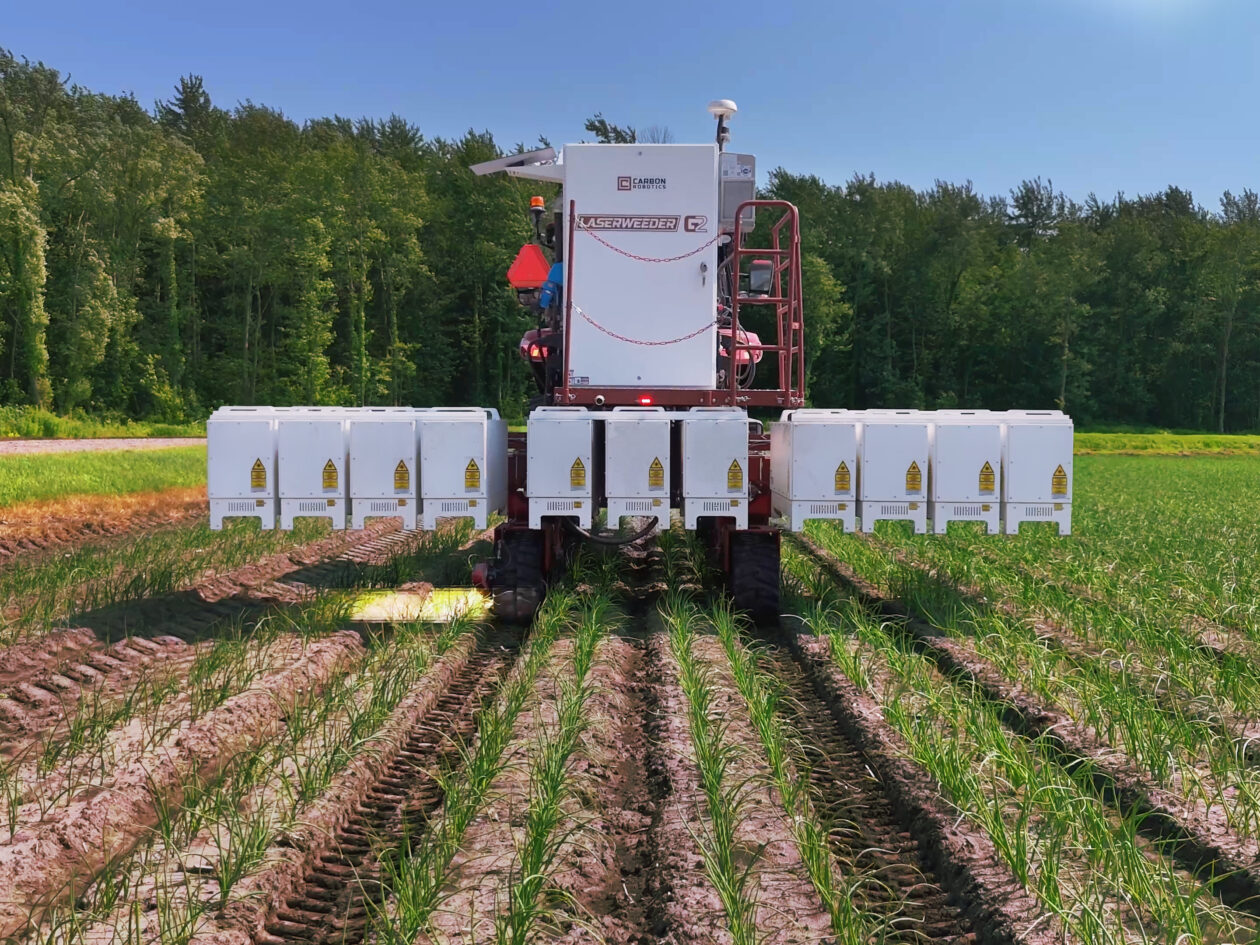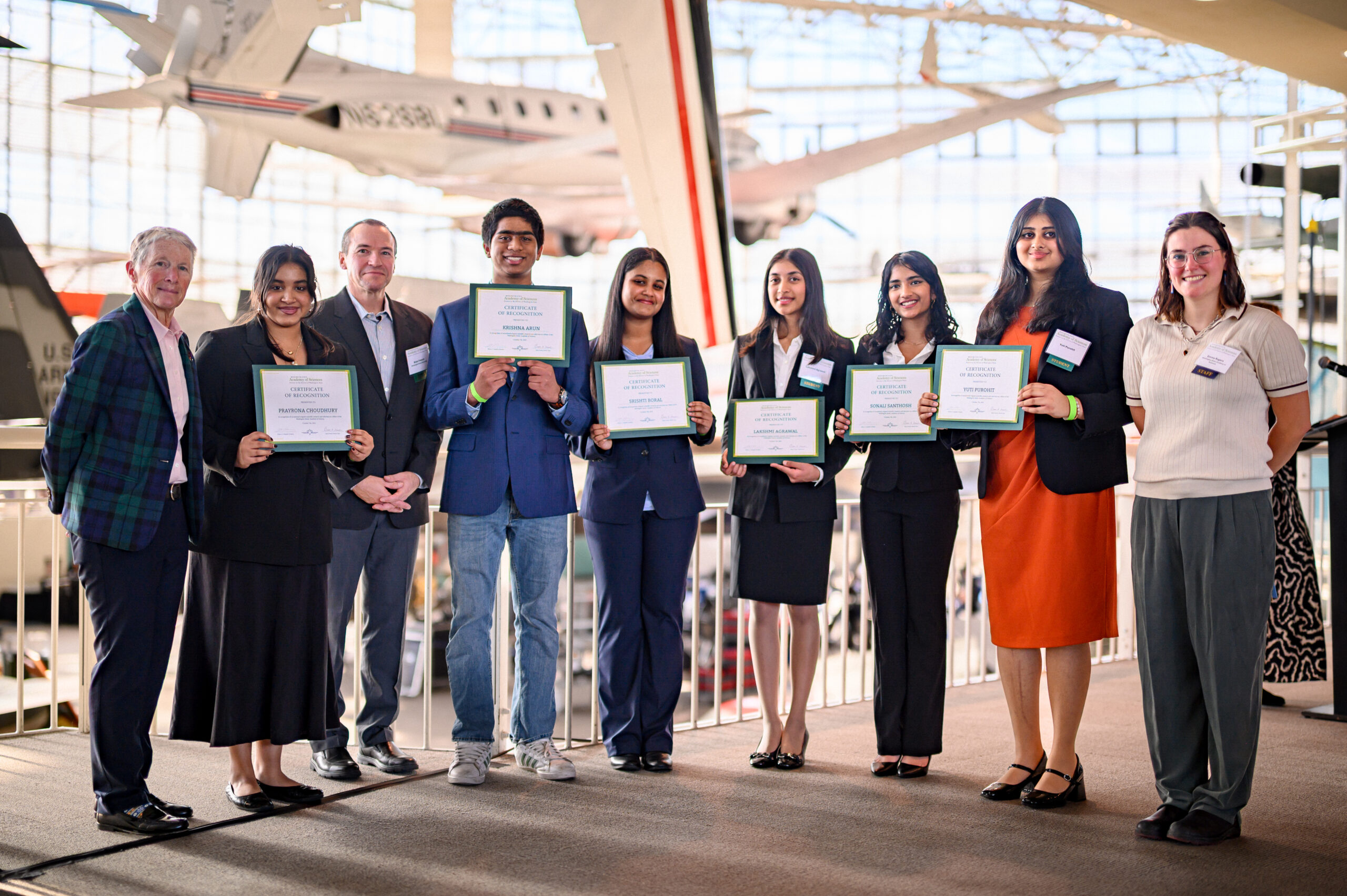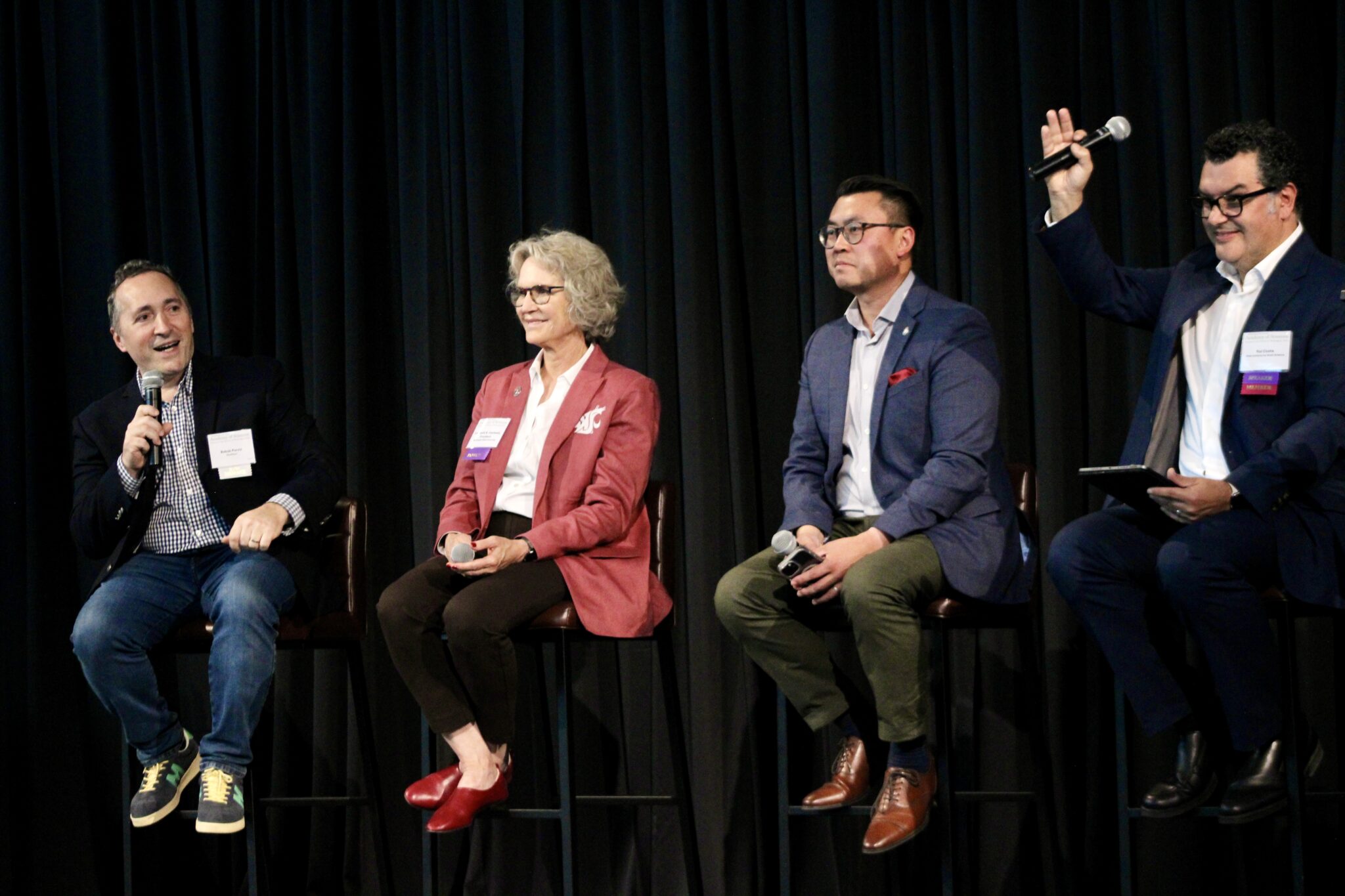
You wouldn’t know it from looking at it, but Third Place Books in Lake Forest Park played a critical role in establishing the Washington State Academy of Sciences. Sitting in that coffee shop in 2006, Drs. Jim Cook and Gordon Orians poured over the website of the National Academy of Sciences (NAS). Jim, a plant pathologist and crop and soil scientist from Washington State University, and Gordon, an ornithologist and ecologist from the University of Washington, had both been elected to NAS for their important contributions to their respective fields. As members, Jim and Gordon were familiar with NAS processes and thought, what better model to emulate when creating a new science academy for the state of Washington? As Gordon put it, “We wanted to do for the state what the National Academy does for the nation – inform, but not set policy.”

 The year prior, in 2005, Governor Christine Gregoire recognized that it would be beneficial for the state to have access to experts in various scientific fields to assist the state in making critical decisions where scientific information is key to making good and effective policy. She thus supported legislation, Engrossed Senate Bill 5381, to create the Washington State Academy of Sciences and asked the presidents of the University of Washington and Washington State University to provide guidelines for the Academy, organize it and see that it operated as intended. Gordon and Jim were part of the subsequent committee tasked with establishing the academy.
The year prior, in 2005, Governor Christine Gregoire recognized that it would be beneficial for the state to have access to experts in various scientific fields to assist the state in making critical decisions where scientific information is key to making good and effective policy. She thus supported legislation, Engrossed Senate Bill 5381, to create the Washington State Academy of Sciences and asked the presidents of the University of Washington and Washington State University to provide guidelines for the Academy, organize it and see that it operated as intended. Gordon and Jim were part of the subsequent committee tasked with establishing the academy.
As with many committees filled with busy faculty, the committee’s wheels were spinning – everyone was very supportive of the initiative, but few had the time to take action to move it forward. That’s when Gordon and Jim decided to sit down, fueled by coffee at Third Place Books, and work together to create an initial proposal for WSAS’ bylaws and its general structure. Jim reminisced that they were both motivated by the sense that they “were helping to create something new, something we believed in.”
WSAS was to be different from most state science academies in that from its inception it was meant to be a working academy and not simply honorific. In the initial invitation to potential members, Gordon, who was serving as WSAS’ inaugural president, made very clear that saying “yes” to joining this academy meant you were willing to contribute expertise to the state. Active members are vital for WSAS to meet its intended purpose of informing policy and increasing the role and visibility of science in the state. Jim, who in those early days served as WSAS’ treasurer, also pointed out, “How can we respond to the legislature if members aren’t willing to be active? It is part of the election criteria that they identify how they will engage and contribute to the Academy if elected.”
While the WSAS staff and board are working to develop more opportunities to engage members in WSAS activities, members are also invited to propose projects that they would be willing to lead with support from WSAS staff (contact Donna Riordan). WSAS is grateful for its many champions, including Gordon and Jim, whose dedication has enabled WSAS to carry out its mission to provide Washington state with the best scientific advice available in a timely and efficient manner. WSAS has come a long way since those days at Third Place Books, but its reliance on the initiative of members like Gordon and Jim remains the same.
Related Posts
January 23, 2026
A new initiative from the Washington State Academy of Sciences called Growing with AI will bring together the state’s tech giants and diverse farming community to tackle pressing challenges in the agriculture industry.
October 28, 2025
WAJAS is a WSAS program recognizing exceptional high school students from across the state for outstanding original scientific research and offering opportunities to connect with the research community in Washington and beyond. Fellows were publicly honored alongside Washington's top researchers at the WSAS 20th Anniversary Celebration on October 7.
October 14, 2025
Amid political polarization and uncertain federal research policy, Washington leaders are betting on stability through a unique innovation ecosystem rooted in the state’s institutions and businesses. That was a theme at the 20th anniversary celebration of the Washington State Academy of Sciences, held Tuesday evening at Seattle’s Museum of Flight.


